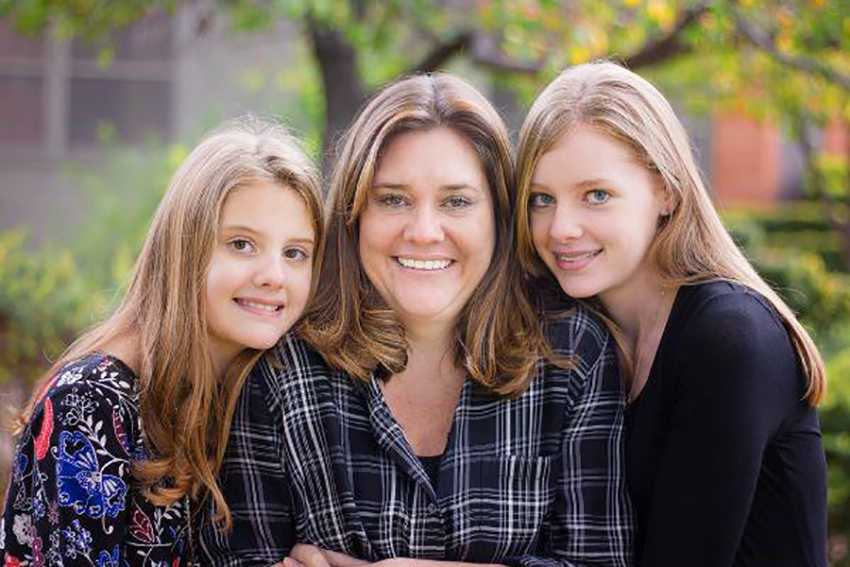ASU Law marks successful first decade of graduating Master of Legal Studies students
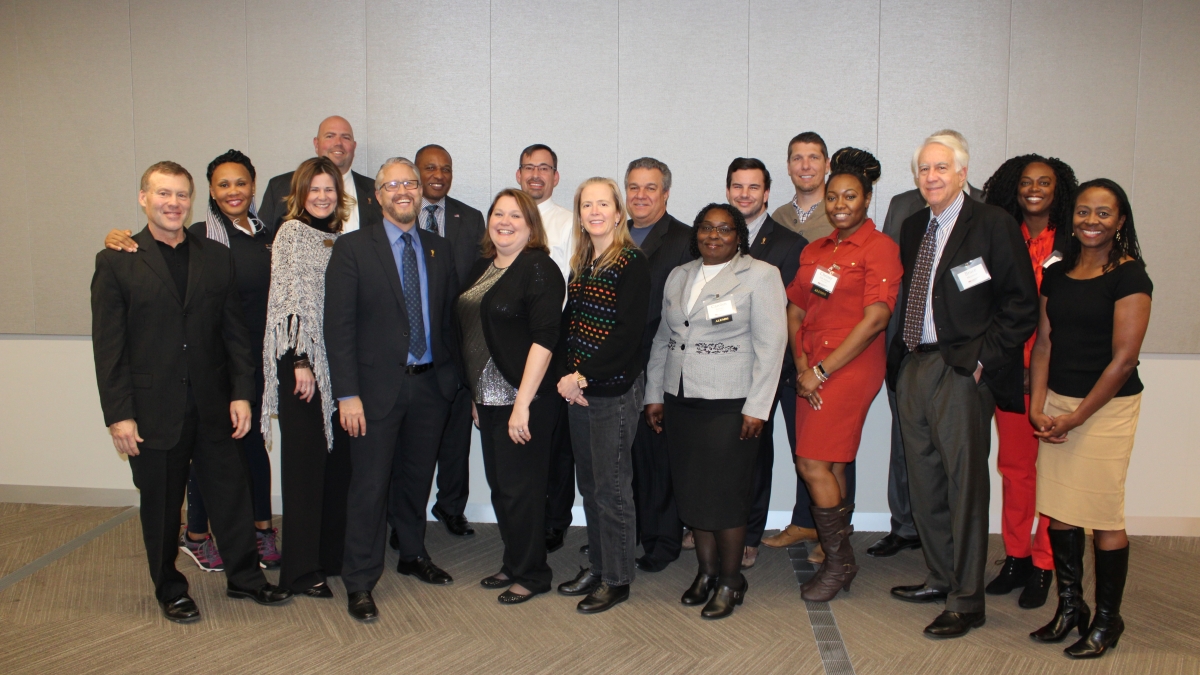
MLS Graduates at the 10th anniversary dinner
A law school is filled with aspiring lawyers for whom the institution serves an obvious purpose. But is that the only career path that should wind its way through a law school’s hallways?
It’s a question the Sandra Day O’Connor College of Law at Arizona State University pondered when it launched a Master of Legal Studies (MLS) degree program in 2006. A decade later, the MLS program has provided a clear answer: ASU Law is not only a place for aspiring lawyers, but one with ample room, purpose and demand for a wide range of professions.
“Our goal is to not only provide an outstanding legal education, but also to move careers forward,” said Eric Menkhus, ASU Law’s associate dean of new education initiatives and the lead administrator of the MLS program. “The impressive and ever-growing list of career achievements by our MLS alumni is a testament to the strength and value of the degree.”
The 30-credit graduate program offers an understanding of legal principles in a choose-your-own-adventure manner, allowing students to cater the curriculum to their particular fields of interest. It is designed for those interested in learning about the law, especially as it relates to their profession, but who do not necessarily need to become a lawyer.
“It was initially envisioned to be a degree for academics and professionals in other industries, and we thought we’d only have a handful of students every year,” Menkhus said. “Eventually we realized the knowledge we could impart on people could help them build skills that are useful in a wide range of careers, so we started to expand on that vision and grow it to a larger program.”
A flexible program
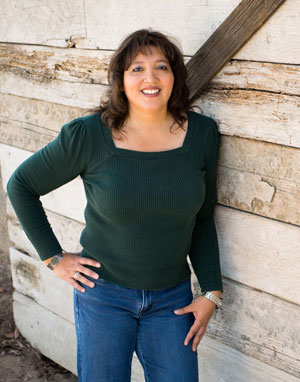
Guillermina “Mina” Lopez
With working professionals in mind, the program is designed to be flexible. Courses can be taken in the fall and spring, full time or part time, in-person or online.
That flexibility was critical for Guillermina “Mina” Lopez, one of the most recent MLS graduates. Deeply entrenched in her human-resources career, and a single mother of three teenage boys, Lopez, an HR generalist for ReBath, took all of her courses online.
“It’s a great way to get an introduction to law, especially if you’re not sure if you want a Juris Doctor degree,” said Lopez, who was named Outstanding Master of Legal Studies Graduate upon completing the program this fall. “It is definitely a faster path, and since I did the entire program online, I could fit it easily into my schedule.”
Like Lopez, Christy Hegebush, who was working in education, was hoping to study law while also balancing the demands of parenthood and a full-time career.
“I did not want to pursue a master’s in education or education administration, as I wanted to open other doors in the future,” Hegebush said. “The MLS program offered me the ability to earn a master’s as well as look into other options when the time was right. The program also had the flexibility I needed in order to be a mom and continue working.”
Hegebush was able to juggle all of her responsibilities, and the hard work paid off, leading to a proud graduation day.
“As a single mom with two small children and working full time, I did it,” she said. “I proved to my girls and myself that working hard and reaching for your dreams is so worth it.”
Christy Hegebush
Lopez was similarly motivated to set a good example for her sons.
“I want to show them that they can accomplish anything if they put their mind to it,” she said. “It’s never too late to pursue additional education or to pursue that dream job that you always wanted to do. I think we need to challenge ourselves and not be afraid to take risks. Whatever career you decide to pursue, it will be more gratifying if it’s one that you enjoy doing and brings you satisfaction versus just a job that pays the bills.”
Professionals of all experience levels
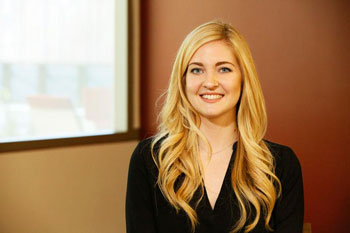
Samantha Geiger is a graduate of the Master of Legal Studies program at ASU.
Samantha Geiger had been working in human resources for about four years when she decided she wanted to pursue a graduate degree. She wasn’t looking to change fields — she enjoyed working in HR — but wanted to get an MBA, a master’s in human resources, or perhaps go to law school for a JD degree, with the goal of becoming in-house counsel.
“In looking at ASU’s graduate programs, I came across the MLS program and realized it was a perfect fit for what I wanted to do,” Geiger said.
That perfect fit led to the perfect job, which was waiting for her upon graduation this spring. A week after finishing finals, Geiger began working as an HR business partner for Groupon.
“My MLS degree has given me the tools to speak and debate knowledgeably with other HR professionals and with lawyers,” she said. “And it has given me a great foundation of knowledge that makes me better at recognizing and mitigating risk, as well as understanding our legal system and how companies operate and navigate.”
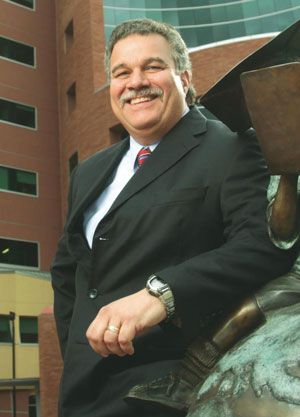
Blaine Bandi
Blaine Bandi, chief administrative officer for Wesley Community and Health Centers, was well into his career when he made the decision to get a legal education. He figured the only way to do that was to enroll in law school and pursue a JD degree.
“I was actually unaware of the MLS program,” he said.
But he came across it while researching his options, and decided it was more appropriate for his circumstances.
“I represent sort of a weird niche in the program in that I was already well established in a career and was looking for an opportunity to better understand areas within my career that could be supported with a degree in law,” said Bandi, who in 2012 received the program’s first Outstanding Master of Legal Studies Graduate Award. “And as a result, that’s what appealed to me. I wasn’t necessarily looking to become a lawyer. I was more interested in understanding the law as it applies to my already chosen and established field.”
Did the program deliver what he was looking for?
“Yeah, in spades — it was beyond my expectations in that respect,” he said. “I come from an industry, health care, that is heavily regulated and heavily involved in policy areas, and the MLS degree provides a lot of background, knowledge and understanding of any industry. I would recommend the program to anyone who is in a career field that touches a lot of regulations or policy. It served my purposes very well.”
Positive outcomes
By all accounts, the program has been a resounding success. That’s measured partially by the increasing level of interest. Entering the 2017 fall semester, the program had over 170 students enrolled, after graduating about 250 in the first decade.
“With the interest that we’re garnering from students, the market is validating that this is something interesting to professionals and people at various stages of their careers, and they feel a one-year legal education will help that career,” said Menkhus, noting that the program’s administrative staff has expanded significantly. “As the program has grown, we’ve grown our support, and we continue to grow our resources.”
But success isn’t measured solely by rising demand and enrollment numbers.
“We also measure success through our student surveys, and we have very positive feedback, both while they’re here and upon graduation,” Menkhus said. “The credentials of the people who are applying has been increasing. We have lots of students who go on and have really good careers and credit the MLS with a major positive influence on their career trajectory.”
For Bandi, the legal knowledge he gained has helped him navigate the increasingly complex world of health care.
“The degree itself has been exceedingly helpful in better understanding how health-care policy and regulations occur, can be changed and can be managed,” he said. “So, exposure to things like legislation and administrative law are wonderful opportunities for anyone within a highly regulated field. Because the tendency seems to be that, without that background, you just grow frustrated by bureaucracy or regulations. I now have a better understanding of why that bureaucracy is there, what its intent is, and how to better navigate it within my particular industry.”
Hegebush is the exceptional-student service regional coordinator at Chandler Preparatory Academy, and also runs her own business as an advocate for families in special education.
“The MLS program has opened up doors for me in many ways,” she said. “I’ve started my own business, which allows me to use what I learned to help families of students with disabilities receive the best education they can. When new laws are passed or court decisions are made that impact special education, I have a better understanding of what they mean and am able to translate that meaning to parents.”
Lopez has been in the workforce for almost 30 years and already had two graduate degrees: an MBA and a master’s in human-resources management. And now, armed with a third master’s diploma, she’s more confident than ever.
“By obtaining the MLS degree, I feel I will be more equipped to understand the decisions made by the courts and how they relate to my employer and myself,” she said.
Geiger shares Lopez’s sense of newfound confidence.
“Having had some real-world experience in my HR career when I came to ASU, I found that I was able to apply situations that I had come across in work to my learnings at ASU Law,” she said. “It strengthened my decision-making ability, foundational knowledge of my field, particularly employment law, and gave me more confidence in my HR skills and expertise.”
The next decade — and beyond
With the program now in its second decade, Menkhus says the goal is to keep adapting to market needs.
“Right now, for example, compliance is an area where having some legal skills is important, and it’s an area that is just growing and growing,” he said. “So we’re launching a corporate and health care compliance emphasis within the degree this fall.”
And he’s confident that by continuing to focus on outcomes for the students, helping them develop the skills needed for the careers they want, graduates of the program, along with their employers, will benefit.
“We want to continue to monitor the marketplace and react to what the needs are out there,” he said. “We want to prepare students to be successful, and to help industries by providing them with highly trained, skilled thinkers to solve their problems.”
For Hegebush, the benefits of the program are undeniable, and she would recommend it to anybody.
“Do it,” she said. “The doors that can open afterward are amazing.”
More Law, journalism and politics
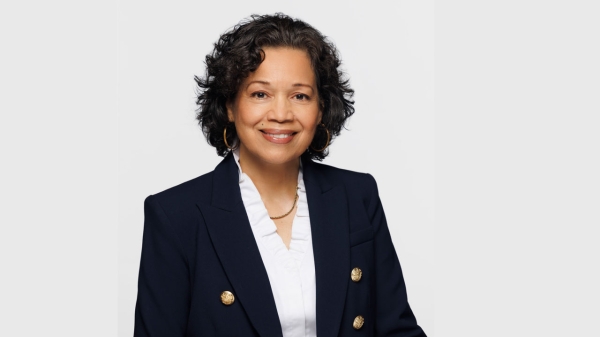
CBS News president to give keynote address at Cronkite School’s spring convocation
Ingrid Ciprián-Matthews, president of CBS News, will serve as the keynote speaker at Arizona State University’s Walter Cronkite…

School of Politics and Global Studies director's new book explores mass violence
Why do people commit atrocities and why are certain groups, including religious and ethnic, more vulnerable to large-scale…

ASU faculty contributing to improvement of Wikipedia
Many academics have a love-hate relationship with Wikipedia. While the website has information about almost anything you can…
